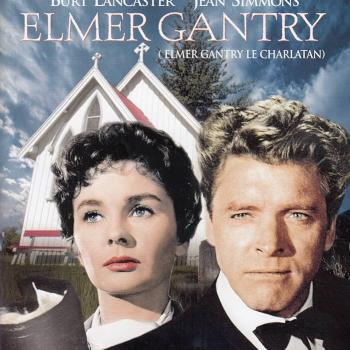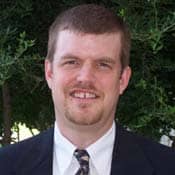Everyone interested in American religious history—especially those with Reformed sympathies—should know about Charles Hodge. Some called Hodge, the most influential seminary educator of the 19th century, the "Pope of Presbyterianism." Hodge's stature in religious history has faded, obscured by figures from his era with more dubious legacies, including the evangelist Charles Finney, and Joseph Smith, the founder of Mormonism. But Hodge's place in the first rank of American theologians should receive a deserved boost from Paul Gutjahr's excellent biography (just announced as a 2012 Christianity Today book award winner) Charles Hodge: Guardian of American Orthodoxy.
Hodge's father died when Charles was six months old, but his mother made sure that he was surrounded by mentors in the faith. Ashbel Green was Hodge's pastor at Philadelphia's Second Presbyterian Church, and later, the president at Princeton College when Hodge studied there. These were times—not entirely forgotten in some Christian circles today—of children committing doctrine to memory, and as a boy Hodge routinely appeared before Green to be drilled on the Westminster Catechism. Later, at Princeton, he again had to memorize the Catechism—this time in Latin.
Gutjahr argues that these lessons inextricably shaped Hodge's mature theology and temperament. Hodge spent his career defending and teaching the Calvinist precepts he learned in the Catechism: the absolute supremacy of God, the absolute inability of people to save themselves from the wrath of God against sinners, and the absolute efficacy of Christ's work on the cross to deliver believers from that fate.
The early history of Hodge's church and his employer Princeton were inextricably connected to the gospel preaching of Great Awakening luminaries George Whitefield and Gilbert Tennent. Tennent had been the first pastor at Hodge's home church, and Princeton had originally served as a seminary for revivalist Presbyterian pastors. Hodge, however, balked at what he saw as the exaggerated emotionalism of the First and Second Great Awakenings, and focused more on proper belief and sanctification than godly affections. Like many of his Princeton colleagues, he unapologetically believed in a hierarchy of the well-trained and educated during a time of burgeoning democratization in church and culture.
Still, Hodge's faith stirred him emotionally, too. The great Princeton revival of 1815 was his turning point. Before this revival, Hodge thought he would become a medical doctor. But the awakening led Hodge into an intense season of spiritual searching, and he found that God had made his boyhood beliefs both sincere and heartfelt. He testified to that newly invigorated faith before the Princeton Presbyterian Church on January 15, 1815.
Revival notwithstanding, Hodge and the Princetonians were, in Gutjahr's rendering, unreconstructed Calvinist conservatives who resisted any Arminian dulling of Reformed theology's sharp edges. The growing divide between anti-revivalist "Old School" Calvinists (mostly east coast and southern) and the "New School" revivalists of the trans-Appalachian west led to an ugly national schism in the Presbyterian denomination in 1837, a split which even Hodge knew was orchestrated by his Old School allies in a heavy-handed manner.
Hodge and the Princetonians never seemed prepared to accommodate the egalitarian, populist tendencies within evangelicalism, a fact that limited Hodge's appeal to rank-and-file believers. Indeed, Hodge seems representative of those in the Reformed segment of evangelicalism who struggle to sympathize with their more "democratic" Christian brethren. This tension persists today, as Reformed folks routinely lament the anti-intellectualism and sentimentality of evangelical church life, but often seem unable to engage more revivalistic evangelicals with Hodge's kind of learned, historically-rooted piety.
Hodge was (in)famous for his boast that "a new idea never originated" at Princeton Seminary during his tenure there. But Hodge actually did produce new ideas, as all great Christian thinkers do—ideas that defended the ancient faith for a new generation, in light of contemporary challenges. So, for example, Hodge perceptively commented on Darwinist evolution, the Civil War, and German-led higher criticism of the Bible.





